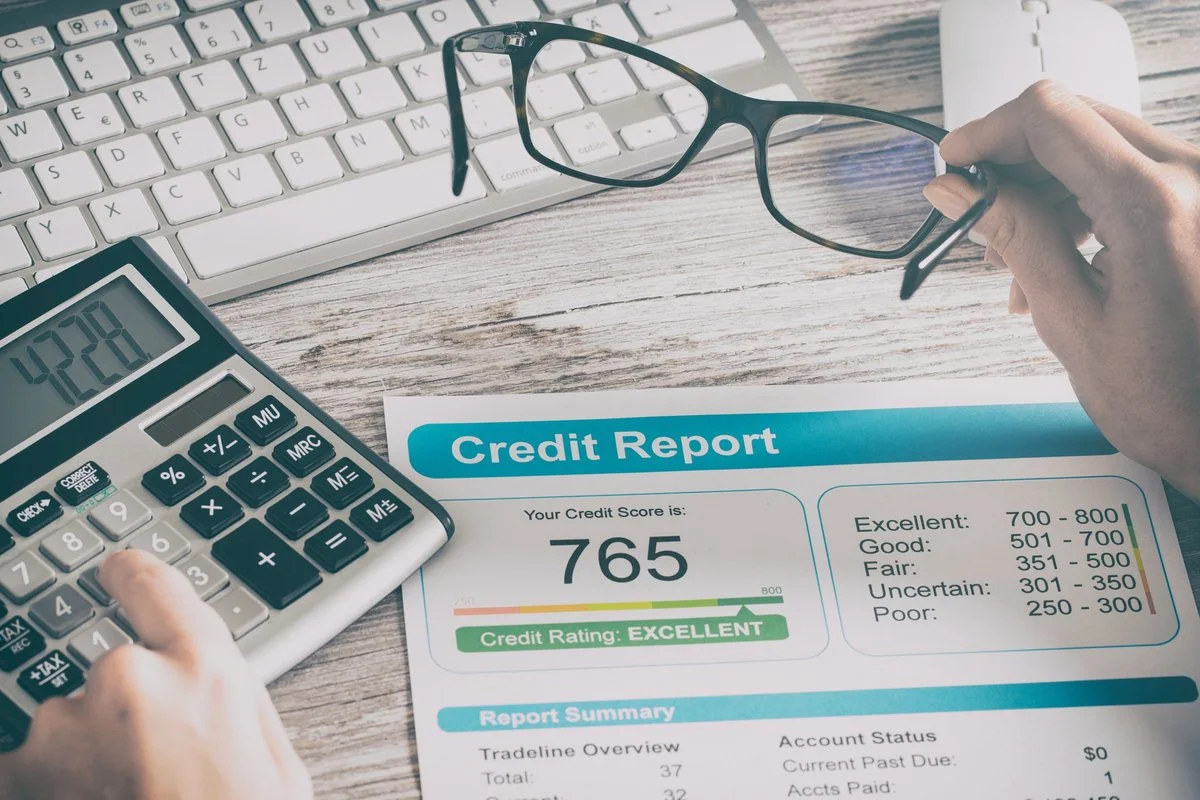
If you’re in the process of applying for a mortgage, car loan, or any other type of loan, you’ve probably heard of your credit score. But what exactly is it? Simply put, your credit score is the most important factor in whether or not you get approved for new credit — whether it’s a credit card or house loan. It’s also used by landlords to determine whether or not they approve your application, and can even be used by potential employers when checking up on your background.
1) Check Your Report

The first step is to always check your credit report for any errors. You’re entitled to a free report from each of the three credit bureaus once per year. If you see any mistakes, dispute them immediately. The second step is to keep your balances low. Paying off your balances in full each month is ideal, but if you can’t do that, keep your balances below 30% of your credit limit. Higher balances can hurt your score.
The third step is to pay your bills on time. While you can technically pay late without incurring any additional fees, it’s best not to do so if you want a high credit score. If you have trouble with paying on time, set up automatic payments as early as possible so that you don’t have to worry about remembering a bill’s due date. The fourth step is to use less than 30% of your available credit. This shows lenders that you can responsibly handle borrowing large sums of money in case they need your business in future.
2) Keep Good Habits

You’ve probably heard the saying, If it ain’t broke, don’t fix it. The same goes for your credit score. If you have good credit habits, don’t stop doing what you’re doing! Continue paying your bills on time, maintaining a good credit mix, and using credit responsibly. Also, resist the urge to open new accounts or close old ones. Doing so could result in a higher interest rate on your existing debt.
The second-best way to improve your credit score is by improving your credit mix. You’ve probably heard of prime, subprime, and super prime lending. These terms describe who a lender decides to lend money to, but they also can be applied in terms of credit score. A loan with a higher interest rate is considered subprime, while one with a lower interest rate is considered prime. If you have many loans with high interest rates in your credit mix and few loans with low interest rates—or even none at all—your credit score will suffer because it seems as though you can’t afford to pay off any debt you already have.
3) Always Pay Bills On Time

One of the most important things you can do to improve your credit score is to always pay your bills on time. This includes everything from rent and utilities to credit cards and loans. A single late payment can negatively impact your score, so it’s important to make sure you always pay on time. You can set up automatic payments for many bills, so you don’t have to worry about forgetting.
To make sure you’re never late on a payment, set up automatic payments with your bank for all bills and set reminders for yourself. This ensures that you’ll never forget an important payment and will improve your credit score over time. If you want to be extra safe, look into getting some type of bill management service that can remind you when certain bills are due. Many services offer free trials, so it’s worth looking into before committing to anything long-term.
4) Consider a Secured Credit Card
A secured credit card is one of the best ways to start building your credit score. With a secured card, you deposit money into an account with the credit card issuer, which serves as your line of credit. This deposit is usually equal to your credit limit, so you’re not borrowing money from the issuer. Because you’re not borrowing, there’s no risk for the issuer, which means they’re more likely to approve your application even if you have bad credit. Just make sure you choose a secured card from a reputable issuer and use it responsibly by making on-time payments and keeping your balance low.
If you have bad credit, you may have trouble getting approved for a standard credit card. Luckily, there are other options available. One option is a secured credit card, which requires a cash deposit up front. This deposit serves as your line of credit and can help you build your credit score if you use it responsibly by making on-time payments and keeping your balance low.
5) Don’t Close Old Accounts

The first step is to understand how credit scoring works. A big part of your credit score is based on the length of your credit history. So, one thing you can do to give your score a boost is to keep old accounts open and active. This shows lenders that you’re a responsible borrower who has a long history of managing credit responsibly.
The key is not closing your accounts. While you don’t want to keep them if they aren’t being used or you no longer need them, your credit score benefits from keeping older accounts open. However, there are a few exceptions that can affect when you should close an account. If an account has gone into collections and is hurting your credit score, then you should definitely close it. Likewise, if an account has high fees and charges making it a bad deal, then get rid of it too.